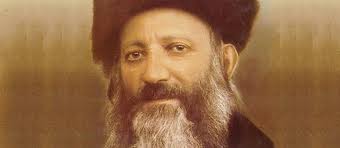Love and Knowledge

The love of all creatures must be alive in the heart and in the soul, love of all humanity especially, and love of all the nations every one, desiring their ascent and development spiritually and materially… with an inner love from the depths or the heart and inward- most being, desiring to benefit and see good for all the nations, desiring to improve their endeavors, to make happy their lives…
The higher level of love for the creatures must take up the love for the human being, and this love must spread out to all humanity. Despite differences of ideas in religions and beliefs, and despite the separations of race and climate, it is required to delve into the depths of the consciousness of different peoples and groups, as much as it is possible to learn of their ways and characteristics, in order to attain knowledge of how to establish the love for humanity on foundations that approach deeds. For only in a soul rich with the love for all creatures and with the love for humanity, can the love of the nation ascend in the genius of its noble possibility an in its spiritual and practical greatness. Indeed it is narrowness of vision, that causes one to see everything outside the boundary of one’s special nation, even if it is outside the boundary of Israel, as ugliness and that-which-arouses-distress-and-thus-being-antithetical-to-divine-service-as-a-phenomenon-with-which-we-ought-to-avoid-all-contact – such an attitude is one of the most terrible darkenings, which cause complete ruin of every project for the spiritual good, for whose light every gentle sensitive soul anticipates.
Rabbi Avraham Yitzchak HaKohen Kook (1865-1935)
In a quintessentially rabbinic manner, the Rav Kook here argues that the love of all humanity must be realized in specific concrete actions that will actually make this love real. Thus we are obligated to become more knowledgeable of the other cultures, other traditions, other religions of our fellow human beings who are not of our particular religious and national belonging – even other traditions beside Judaism. For genuine love can be developed only from genuine knowledge.

Share this articulation by the Rav Kook in your group, and consider it together with the following argument by Michael Rosenak in his book Commandments and Concerns: Jewish Religious Education in Secular Society, (The Jewish Publication Society, Philadelphia – New York & Jerusalem, 1987)

Rabbi Akiva teaches us: Beloved is the human being – all human beings – seeing that he/they are created in the Divine image.
Mishnah Avot, chapter 3, mishnah 18

… Thus, “philosophy” alone is never adequate for educational decision making, even theoretically, without a program of ideals, which tell us how to live by the principles.
To illustrate: For many religious people, moral norms designed to deal with people in a manner that safeguards and enhances human dignity are based on the belief that people are created in God’s image. However, the mere doctrinal assertion that “people are created in God’s image” is inconsequential, unless we uncover its normative aspect. This requires the following: (a) a statement with valuative implications, such as “ ‘God’s image’ means that people are dignified”; (b) a prescriptive statement, such as “dignity requires that people relate to one another in certain ways in specific situations”; (c) a social conception to protect and further the norms, such as “a good framework for assuring human dignity is socialism, or rugged individualism, Hasidism, or Kibbutz.” Ultimately, we also require (d) a programmatic educational statement, such as, “therefore we should educate children to treat others with dignity, to understand why they should do so, and to defend the social framework and system that are congenial to it.”
Michael Rosenak
In smaller groups of three or four or five people in a group discuss Professor Rosenak's argument and try it out. In other words, consider what kind of community, what kind of societal, political and economic arrangements or systems might best further the dignity of human beings deriving from their all and each being in the Divine image. Also what kind of understanding of psychology and what kind of understanding of, say, the arts, etc. might/would you see as most enhancing the dignity of each and every human being created in the image of God.
You might want to have large poster boards and magic markers for each of the small groups to jot down their ideas ~ so they can better focus and develop what they come up with ~ and so they can better share ~ each group what they develop within their group ~ so they can better share what they come up with – with the larger group later coming together.